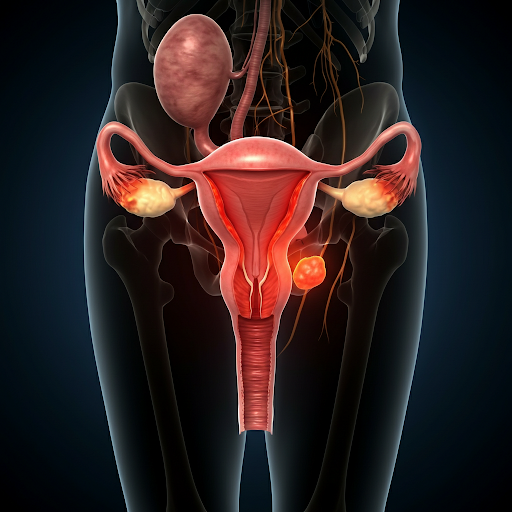Introduction
Uterus infections, also known as uterine or pelvic infections, can cause significant discomfort and impact a woman’s reproductive health if not managed effectively. This Q&A guide aims to address common concerns, provide prevention tips, and empower you with knowledge to maintain optimal uterine health.
Q1. What is a uterus infection, and what causes it?
A uterus infection is an inflammation of the uterus, often caused by bacterial, fungal, or viral infections.
Causes include:
- Sexually transmitted infections (STIs) like chlamydia or gonorrhea.
- Poor menstrual hygiene.
- Use of unhygienic menstrual products.
- Postpartum infections due to prolonged labor or retained placental tissue.
- Pelvic inflammatory disease (PID).
For more detailed study visit Harvard Health Guide on Pelvic Infections
Q2. What are the symptoms of a uterus infection?
Common symptoms to watch for include:
- Lower abdominal pain or cramping.
- Foul-smelling vaginal discharge.
- Unusual bleeding or spotting.
- Fever or chills.
- Pain during intercourse or urination.
Q3. How can uterus infections affect fertility and overall health?
If left untreated, uterus infections can:
- Lead to scarring in the reproductive organs.
- Cause chronic pelvic pain.
- Increase the risk of infertility or ectopic pregnancy.
- Result in systemic infections if the bacteria spread.
Q4. What are the common risk factors for uterus infections?
You might be at higher risk if you:
- Have multiple sexual partners.
- Use intrauterine devices (IUDs) without regular checkups.
- Recently had a miscarriage or abortion without proper aftercare.
- Have a weakened immune system.
Q5. How are uterus infections diagnosed?
Doctors may perform the following tests:
- Pelvic exam to check for tenderness and discharge.
- Ultrasound to detect abnormalities.
- Blood tests for infection markers.
- Swabs to test for bacterial or viral infections.
Q6. What treatments are available for uterus infections?
Treatment depends on the infection’s cause and severity:
- Antibiotics: For bacterial infections.
- Antifungal medications: For yeast infections.
- Hospitalization: For severe infections requiring IV antibiotics.
- Surgical intervention: For cases involving abscesses or retained tissue.
Q7. What steps can I take to prevent uterus infections?
Here’s how you can minimize your risk:
- Practice Safe Sex
Use condoms to reduce the risk of STIs. - Maintain Menstrual Hygiene
Change pads or tampons regularly and consider reusable options like menstrual cups. - Stay Hydrated and Maintain Overall Health
A strong immune system helps prevent infections. - Attend Regular Gynecological Checkups
Early detection is key to avoiding complications. - Avoid Douching
It disrupts the natural vaginal flora, making you prone to infections.
For more detailed study visit CDC Guidelines for Preventing STIs
Q8. When should I see a doctor?
Seek medical attention for uterus infection prevention if you experience:
- Persistent abdominal pain.
- Unusual discharge or bleeding.
- Fever lasting more than 24 hours.
- Difficulty urinating or bowel movement changes.
Q9. Can natural remedies help with uterus infections?
While natural remedies like probiotics or herbal teas may offer supportive care for uterus infection prevention, they should not replace medical treatment. Always consult a healthcare professional.
Q10. How can I support my reproductive health after a uterus infection?
- Follow the prescribed treatment plan completely.
- Incorporate a balanced diet rich in vitamins and antioxidants.
- Stay active and manage stress effectively.
- Avoid delaying medical consultations for any recurring symptoms.
Conclusion
Uterus infections are manageable with timely intervention and proper care. Awareness is your first line of defense against these infections, and adopting preventive measures can significantly reduce risks. If you suspect a uterus infection, don’t hesitate to seek medical advice promptly.
Call to Action:
For expert guidance and comprehensive care, visit our Home – Dr. Anjana Jain | Gynae Clinic or book an appointment at 9453951849 today.






Recent Comments